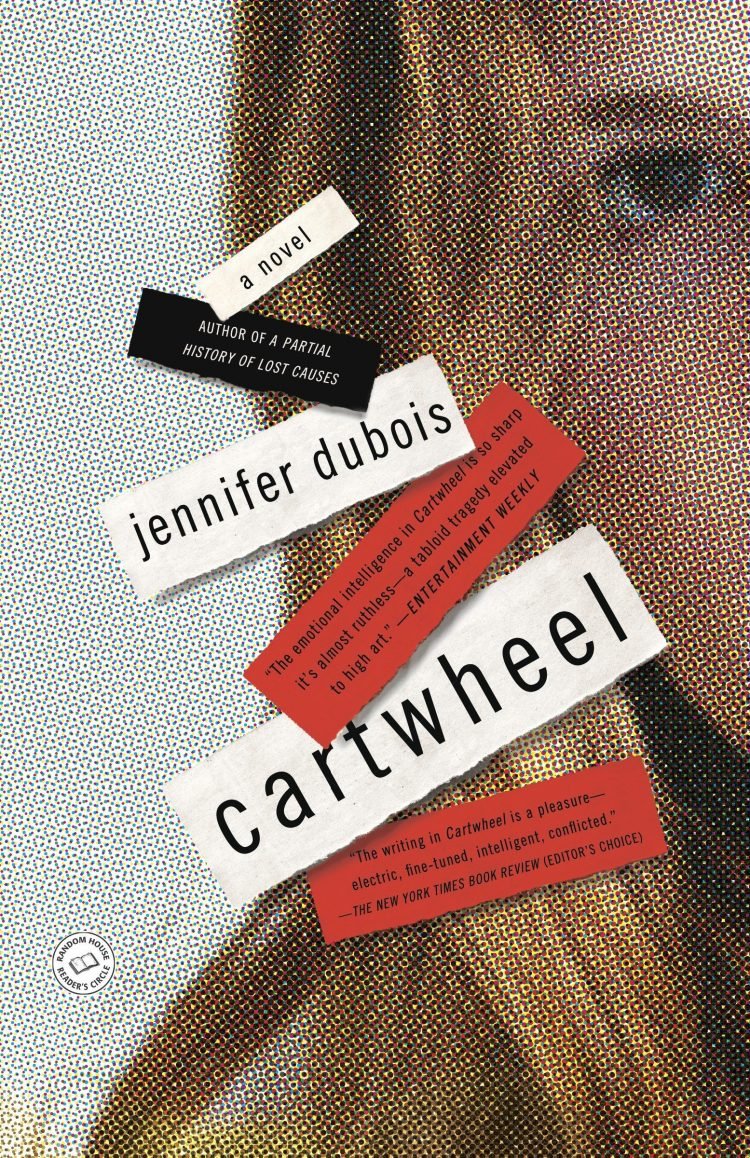No products in the cart.
CARTWHEEL by Jennifer duBois
A Partial History of Lost Causes, Jennifer duBois’ first book, is “an amazing literary achievement – heartbreakingly tragic and shockingly beautiful,” in my opinion. It was listed among my top books of 2012 in my list. So I started out on her second offering, Cartwheel, with much anticipation and high expectations. Katy made her way down the stairs. Her beauty was so stern and intimidating; there was something hard about it, as if she had been chiselled from some rare mineral, in contrast to Lily, who appeared to have grown organically.
When Entertainment Weekly called Jennifer duBois’ most recent work “a tabloid tragedy elevated to high art,” I believe they summed it up perfectly. While partially inspired on the widely publicised Amanda Knox trial and displaying duBois’ trademark command of the English language, Cartwheel is considerably more about the psychology of such an event than the event itself.
Unsentimental Narrative Impact
DuBois’ primary skill is her capacity to write objective narrative and pass the burden of proof directly to her audience. This nearly harsh method of conveying a narrative increases its effect and resonance on the reader. One cannot merely observe; one must think through their own responses in such situations and, more generally, how their ordinary acts may be seen should they ever be subject to such intense scrutiny.
The photographs contained all the information he actually required. There was no jolt of friction between Lily Hayes’ wants and their fulfilment in the images, making it ruinously clear how easily she glided through the cosmos. Her apparent words were “Arise, world.” Seas, part! Buenos Aires, come out and let me take your picture!
A photograph of a woman with a lesion the colour of blood on her face that was obviously secretly shot was on the camera. A picture of a little child without pants was present. There was a photo of Lily Hayes herself, pointing to her insect bites and giving an overly enthusiastic thumbs-up. Eduardo saw that this individual lacked humility. And Eduardo thought that the foundation of morality was humility above all else.
I didn’t feel any sympathy for either the accused or the victim; I wonder what that says about myself. Or maybe that’s the innate ambivalence duBois is attempting to expose in each and every one of us?). As Lily Hayes’ parents and younger sister grappled with their own fears and feelings of helplessness in this situation and in life in general, I found myself feeling more compassion for them.
Despite the fact that, in my opinion, Cartwheel falls short of A Partial History of Lost Causes (perhaps because of its subject matter), it once again demonstrates Jennifer duBois’ extraordinary writing skills and capacity for understanding the complex human psyche. The psychological thriller Cartwheel will linger with you for a long time after you finish it.
About The Book
a murder suspect who is an American exchange student abroad. a father who will stop at nothing to free her. the accomplished attorney in charge of her defence. And the young man who resembles a sphinx and is also her sole possible cover.
Lily Hayes is mesmerised by all she sees when she first arrives in Buenos Aires for her semester abroad, including the vibrant architecture, the street food, and the mysterious guy next door. Although Lily’s scholarly roommate Katy can be a bit of a bore, she didn’t travel to Argentina to socialise with other Americans.
Lily is the main suspect when Katy is found brutally killed in their shared house five weeks later. Who, though, is Lily Hayes? Depending on who is asking, yes. Through the eyes of people around her, Lily appears at once evil and guileless as the case develops, revealing lies, secrets, and questionable DNA.
Jennifer duBois writes a book that is full with unusual moral depth, incisive psychological suspense, and mordant wit. The final page of Cartwheel will leave you in suspense, and its questions about how well we truly know one another—and ourselves—will remain long after.
The Review
Cartwheel
10 Score
"Cartwheel" is the kind of fiction the famous literary icon, Joan Didion, was speaking of, when she said that "Fiction teaches us how to live". I, unlike many posters here, knew exactly what I was getting into when I chose to read this fictional account of the Amanda Knox murder case. Jennifer Dubois tells her reader immediately that this is what she intended, even though she changes names and places and reorganizes a few facts.
PROS
- The Fallibility Of Perception.
- Engaging And Thought Provoking.
- Stunning Fictional.
- Wonderful Characterizations.
CONS
- Unlikeble Characters.
- Flat And Forced.
- Fake Buenos Aires.
- Plot Was Boringly Predictable.











